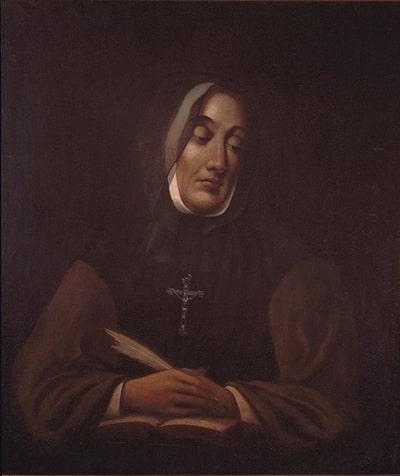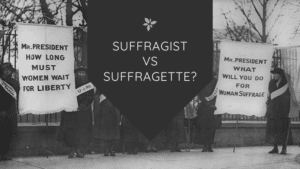On December 9th, 1990 thousands of North Americans converged on St. Peter’s to celebrate the canonization of Marguerite d’Youville (1701–1771), the first Canadian-born saint. Born over 245 years ago outside Montreal, Marguerite d’Youville was an 18th century Mother Teresa who dedicated her life and work to the poor, the ill and the destitute.

This foundress of the Sisters of Charity, like her American counterparts Mother Cabrini and Elizabeth Seton, played a marginal but extremely important part in the history of North America and it is fitting that she is remembered in Rome as well. Pope John XXIII called Marguerite d’Youville the “Mother of Universal Charity” at her beatification ceremony in 1959 for the sacrifices she made to alleviate the suffering of the less fortunate.
The early years of Marguerite’s life read like a soap opera: orphaned at seven, she helped support and educate her younger brothers and sisters until her marriage at 20 with a young man from Montreal-Francois d’Youville. The marriage turned out to be a difficult one and the young bride was often left alone for long periods with a miserly, domineering mother-in-law.
When her husband Francois died it was discovered that he had been following in his father’s footsteps, dealing in illegal trade with the Iroquois Indians and exchanging alcohol for their precious furs. Marguerite, widowed at only 28, became a single parent with two sons (four other children had died in infancy) and also her husband’s debts to pay.
She was able to raise her sons and make a living by running a small shop and eventually found time and money to help the poor of Montreal. Three other women joined her charitable work in 1727, forming the nucleus of a community that became known as the Sisters of Charity.
Some citizens of Montreal looked unfavourably on the women for sharing their home with the poor and derisively called them “Les Soeurs Grises” or “the tipsy nuns” in memory of the public scandal caused by Francois’ dealings. Humbly, Marguerite adopted the mocking name as a nickname for the little congregation.
Humility, however, did not keep her from contesting the religious hierarchy and civil authorities of Quebec when she felt that the poor, sick and homeless were endangered. Crossing the barriers of nationality and religion the sisters cared for both the English and French wounded during the war (1756-9) that saw the colony change hands and flags. The Indians, and later also the Eskimos, found that no one was ever turned away at the Grey Nuns’ door.
Today the legacy of Marguerite d’Youville is continued by the Grey Nuns or Sisters of Charity who work in hospitals, education, social services and parishes in Canada and the United States. Notable is D’Youville College in Buffalo, NY. Many missions of the order can be found in South America, Japan, the Caribbean and Africa as well as hospitals and schools for Indians and Eskimos in the Canadian North Country.
Next, read about the nun Sor Juana Inés de la Cruz, self-taught scholar and poet of New Spain, or the amazing Margaret Nash, courageous WWII POW navy nurse!
Featured image of Marguerite D’Youville courtesy Wikimedia Commons.
American-Irish writer and historian Mary Jane Cryan has been living in Italy since 1965. An international educator, researcher and writer, she has also been an official Vatican guide, Site Director and lecturer for Elderhostel and the creator of start-ups for numerous American universities, high schools, writers and artists workshops. She continues to put her experience to good use acting as consultant for tourism and educational endeavors and as enrichment lecturer aboard luxury cruise ships plying the Mediterranean, Adriatic and Black Seas.






Leave a Reply